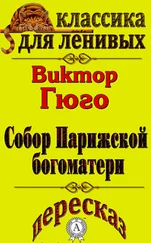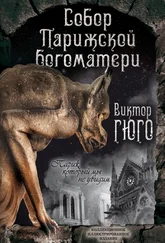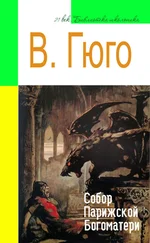| "Enter!" cried the archdeacon, from the interior of his cell; "I was expecting you. |
- Войдите! - послышался изнутри кельи голос архидьякона. - Я поджидаю вас! |
| I left the door unlocked expressly; enter Master Jacques!" |
Я нарочно оставил ключ в замке. Войдите же, мэтр Жак! |
| The scholar entered boldly. |
Школяр смело переступил порог. |
| The archdeacon, who was very much embarrassed by such a visit in such a place, trembled in his arm-chair. |
Архидьякону подобный визит в этом месте был нежелателен, и он вздрогнул. |
| "What! 'tis you, Jehan?" |
- Как, это ты, Жеан? |
| "'Tis a J, all the same," said the scholar, with his ruddy, merry, and audacious face. |
- Да, меня зовут тоже на "Ж", - отвечал румяный, дерзкий и веселый школяр. |
| Dom Claude's visage had resumed its severe expression. |
Лицо Клода приняло свое обычное суровое выражение. |
| "What are you come for?" |
- Зачем ты сюда явился? |
| "Brother," replied the scholar, making an effort to assume a decent, pitiful, and modest mien, and twirling his cap in his hands with an innocent air; "I am come to ask of you-" |
- Братец, - ответил школяр, с невинным видом вертя в руках шапочку и стараясь придать своему лицу приличное, жалобное и скромное выражение, я пришел просить у вас... |
| "What?" |
- Чего? |
| "A little lecture on morality, of which I stand greatly in need," Jehan did not dare to add aloud,-"and a little money of which I am in still greater need." |
- Наставлений, в которых я очень нуждаюсь. -Жеан не осмелился прибавить вслух: "и немного денег, в которых я нуждаюсь еще больше!" |
| This last member of his phrase remained unuttered. |
Последняя часть фразы не была им оглашена. |
| "Monsieur," said the archdeacon, in a cold tone, "I am greatly displeased with you." |
- Сударь! - холодно сказал архидьякон. - Я очень недоволен вами. |
| "Alas!" sighed the scholar. |
-Увы! - вздохнул школяр. |
| Dom Claude made his arm-chair describe a quarter circle, and gazed intently at Jehan. |
Клод, полуобернувшись вместе со своим креслом, пристально взглянул на Жеана. |
| "I am very glad to see you." |
- Я очень рад тебя видеть. |
| This was a formidable exordium. |
Вступление не предвещало ничего хорошего. |
| Jehan braced himself for a rough encounter. |
Жеан приготовился к жестокой головомойке. |
| "Jehan, complaints are brought me about you every day. |
- Жеан! Мне ежедневно приходится выслушивать жалобы на тебя. |
| What affray was that in which you bruised with a cudgel a little vicomte, Albert de Ramonchamp?" |
Что это было за побоище, когда ты отколотил палкой молодого виконта Альбера де Рамоншана? |
| "Oh!" said Jehan, "a vast thing that! A malicious page amused himself by splashing the scholars, by making his horse gallop through the mire!" |
- Эка важность! - ответил Жеан. - Скверный мальчишка забавлялся тем, что забрызгивал грязью школяров, пуская свою лошадь вскачь по лужам! |
| "Who," pursued the archdeacon, "is that Mahiet Fargel, whose gown you have torn? Tunicam dechiraverunt, saith the complaint." |
- А кто такой Майе Фаржель, на котором ты изорвал одежду? - продолжал архидьякон. - В жалобе сказано: Tunicam dechiraverunt. |
| "Ah bah! a wretched cap of a Montaigu! |
- Ничего подобного! Просто дрянной плащ одного из школяров Монтегю. |
| Isn't that it?" |
Только и всего! |
| "The complaint says tunicam and not cappettam. |
- В жалобе сказано tunicam, а не cappettam. |
| Do you know Latin?" |
Ты понимаешь по-латыни? |
| Jehan did not reply. |
Жеан молчал. |
| "Yes," pursued the priest shaking his head, "that is the state of learning and letters at the present day. |
- Да, - продолжал священник, покачивая головой, - вот как теперь изучают науки и литературу! |
| The Latin tongue is hardly understood, Syriac is unknown, Greek so odious that 'tis accounted no ignorance in the most learned to skip a Greek word without reading it, and to say, 'Groecum est non legitur.'" |
Полатыни еле-еле разумеют, сирийского языка не знают, а к греческому относятся с таким пренебрежением, что даже самых ученых людей, пропускающих при чтении греческое слово, не считают невеждами и говорят: Graecum est, non legitur. |
| The scholar raised his eyes boldly. |
Школяр устремил на него решительный взгляд. |
| "Monsieur my brother, doth it please you that I shall explain in good French vernacular that Greek word which is written yonder on the wall?" |
- Брат! Тебе угодно, чтобы я на чистейшем французском языке прочел вот это греческое слово, написанное на стене? |
| "What word?" |
- Какое слово? |
| "'ANANKE." |
- 'Anagkh. |
| A slight flush spread over the cheeks of the priest with their high bones, like the puff of smoke which announces on the outside the secret commotions of a volcano. |
Легкая краска, подобная клубу дыма, возвещающему о сотрясении в недрах вулкана, выступила на желтых скулах архидьякона. |
| The student hardly noticed it. |
Но школяр этого не заметил. |
| "Well, Jehan," stammered the elder brother with an effort, "What is the meaning of yonder word?" |
- Хорошо, Жеан, - пробормотал старший брат. -Что же означает это слово? |
| "FATE." |
- Рок. |
| Dom Claude turned pale again, and the scholar pursued carelessly. |
Обычная бледность покрыла лицо Клода, а школяр беззаботно продолжал: |
| "And that word below it, graved by the same hand, 'Ay?yvela, signifies 'impurity.' |
- Слово, написанное пониже той же рукой, Avayxeia означает "скверна". |
| You see that people do know their Greek." |
Теперь вы видите, что я разбираюсь в греческом. |
| And the archdeacon remained silent. |
Архидьякон хранил молчание. |
| This Greek lesson had rendered him thoughtful. |
Этот урок греческого языка заставил его задуматься. |
| Master Jehan, who possessed all the artful ways of a spoiled child, judged that the moment was a favorable one in which to risk his request. |
Юный Жеан, отличавшийся лукавством балованного ребенка, счел момент подходящим, чтобы выступить со своей просьбой. |
| Accordingly, he assumed an extremely soft tone and began,- |
Он начал самым умильным голосом: |

![Виктор Гюго - Собор Парижской Богоматери [Notre-Dame de Paris]](/books/30985/viktor-gyugo-sobor-parizhskoj-bogomateri-notre-thumb.webp)
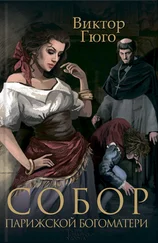
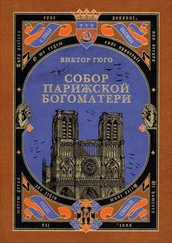
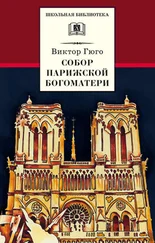
![Виктор Гюго - Собор Парижской Богоматери. Париж [сборник]](/books/398980/viktor-gyugo-sobor-parizhskoj-bogomateri-parizh-sbo-thumb.webp)
